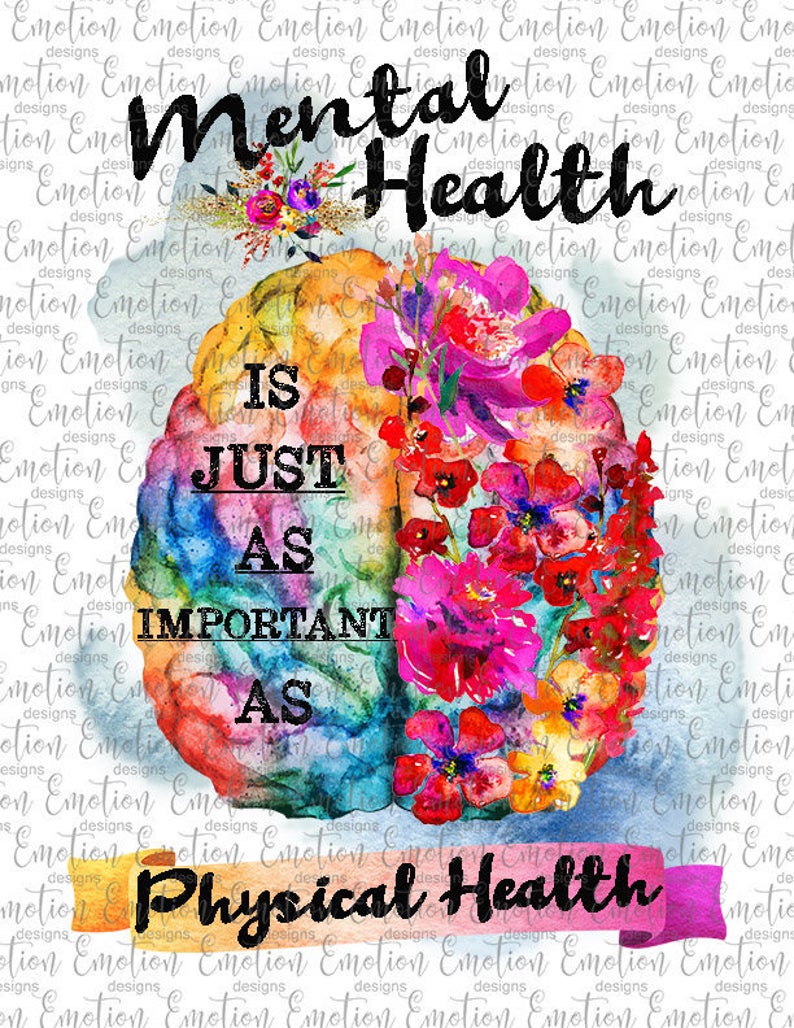In today’s fast-paced and often chaotic world, finding inner serenity can seem like an unattainable goal. However, the connection between wellness and mental health provides us with an opportunity to unlock the path to personal tranquility. Wellness encompasses not only physical health but also mental and emotional well-being. It is a holistic approach to living that involves nurturing ourselves on multiple levels. Similarly, mental health plays a crucial role in our overall well-being, impacting how we think, feel, and act.
Understanding the intricate relationship between wellness and mental health is essential in our quest for inner serenity. When we take care of our physical health through exercise, proper nutrition, and adequate rest, we lay a foundation for mental well-being. Regular physical activity has been shown to reduce symptoms of stress, anxiety, and depression, while maintaining a balanced diet supports brain function and overall mood stability.
See More
Moreover, there is a strong interplay between mental and emotional well-being. Engaging in activities that bring us joy and fulfillment, nurturing our relationships, and cultivating self-compassion are all vital aspects of preserving mental health. As we tend to our emotional needs, we create a harmonious existence guided by positivity and self-awareness.
By exploring the connection between wellness and mental health, we embark on a journey toward inner serenity. Acknowledging and addressing the various dimensions of our well-being, we pave the way for a more balanced and fulfilling life. This article will delve deeper into the strategies, practices, and insights that can help unlock the path to personal tranquility, ultimately leading to a greater sense of inner peace and well-being.
Understanding Wellness and Mental Health

Wellness and mental health go hand in hand, intertwining to create a wholesome and fulfilling life. Both aspects are crucial for our overall well-being and can significantly impact our quality of life. Let’s delve into the connection between wellness and mental health.
When we talk about wellness, we refer to a state of being in good health, encompassing both physical and mental well-being. It goes beyond the absence of illness and focuses on achieving balance across various dimensions of life. These dimensions may include our physical health, emotional state, social connections, intellectual stimulation, and spiritual fulfillment.
On the other hand, mental health refers to our cognitive, emotional, and psychological well-being. It affects how we think, feel, and act, influencing every aspect of our lives. Mental health is not just the absence of mental disorders; it is about maintaining a positive mindset, managing stress, and coping with life’s challenges effectively.
Wellness and mental health are closely intertwined; they influence and support each other. When we prioritize wellness, taking care of our physical health through regular exercise, a nutritious diet, and adequate sleep, we lay a foundation for good mental health. Similarly, when we prioritize mental health through self-care practices, mindfulness, and seeking support when needed, it positively impacts our overall wellness.
In conclusion, understanding the intricate relationship between wellness and mental health is essential for fostering a meaningful and serene existence. By nurturing both aspects, we can unlock the path to inner harmony and lead a fulfilling life.
Exploring the Link between Physical and Mental Well-being
Good physical health is closely intertwined with mental well-being. The state of our body has a profound impact on our mind and vice versa. When we prioritize our physical well-being, we create a positive ripple effect that extends to our mental health.
Regular exercise, for instance, not only helps to improve our physical fitness, but it also boosts our mental well-being. Engaging in physical activity releases endorphins, the feel-good hormones, which can elevate our mood and reduce feelings of stress and anxiety. Moreover, exercise promotes better sleep patterns, allowing us to wake up refreshed and mentally rejuvenated.
Another important aspect of physical well-being that contributes to mental health is nutrition. Eating a balanced diet rich in nutrients and vitamins provides our brain with the fuel it needs to function optimally. Certain nutrients, such as omega-3 fatty acids found in fish, have been linked to improved cognitive function and a lower risk of mental health issues. Additionally, maintaining a healthy weight through proper nutrition can help boost self-esteem and body image, positively impacting mental well-being.
Lastly, adequate rest and relaxation are essential for both our physical and mental well-being. A lack of sleep can contribute to mood swings, difficulty concentrating, and lower overall cognitive performance. On the other hand, ensuring quality rest and engaging in relaxation techniques, such as meditation or deep breathing exercises, can help reduce stress, improve focus, and promote a sense of calmness.
In conclusion, the connection between physical and mental well-being is undeniable. Taking care of our physical health through exercise, nutrition, and rest not only benefits our bodies but also plays a crucial role in promoting mental wellness. By understanding and nurturing this link, we can unlock the path to inner serenity and achieve a harmonious balance between our physical and mental selves.
Implementing Strategies for Inner Serenity
In order to achieve inner serenity and maintain a positive state of mental health, it is essential to implement effective strategies. These strategies can help individuals cultivate a sense of wellness and balance in their lives. Let’s explore some practical approaches that can be incorporated to unlock the path to inner serenity.
Practice Mindfulness: Engaging in mindfulness practices can greatly contribute to inner serenity and mental well-being. By intentionally focusing on the present moment and accepting it without judgment, individuals can foster a deeper connection with themselves, their emotions, and their surroundings. Mindfulness techniques such as meditation, deep breathing exercises, and body scans can be powerful tools in calming the mind and reducing stress levels.
Nurture Healthy Relationships: Building and nurturing positive relationships with others plays a vital role in our overall well-being. Surrounding ourselves with supportive and understanding individuals can provide a sense of belonging and emotional stability. Engaging in open and honest communication, expressing gratitude, and offering support to loved ones can strengthen these connections and contribute to inner serenity.
Prioritize Self-Care: Taking care of oneself is crucial for achieving and maintaining inner serenity. Engaging in activities that promote physical, emotional, and mental well-being is essential. This includes getting enough sleep, maintaining a balanced diet, engaging in regular exercise, and setting aside time for relaxation and self-reflection. Prioritizing self-care allows individuals to recharge, reduce stress, and cultivate a positive mindset.
By implementing these strategies, individuals can pave the way towards inner serenity and strengthen their mental health. It is important to remember that everyone’s journey towards wellness is unique, and finding the right combination of strategies that work for you is key. With dedication and perseverance, it is possible to unlock the path to inner serenity and experience a greater sense of well-being and fulfillment.
